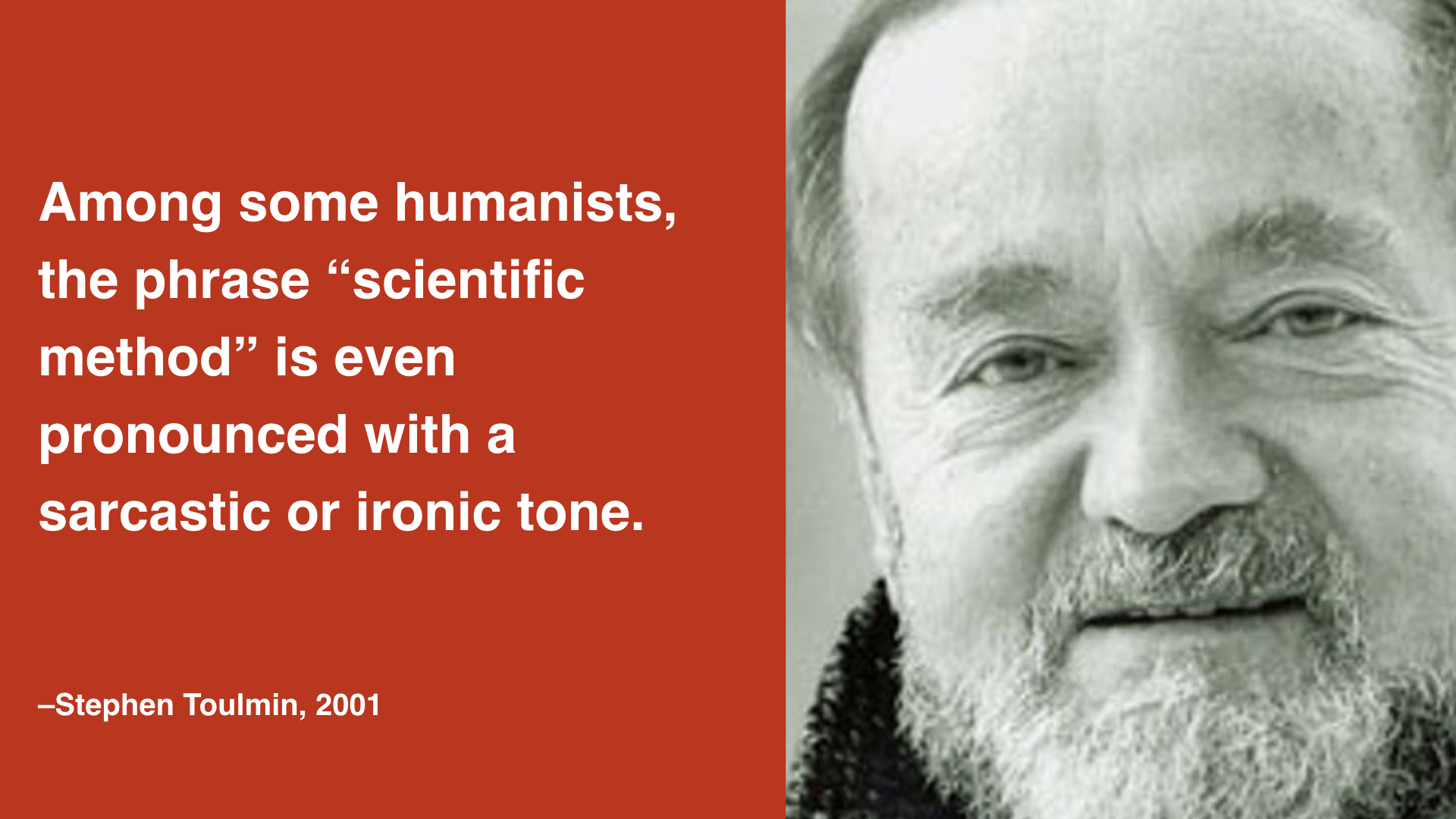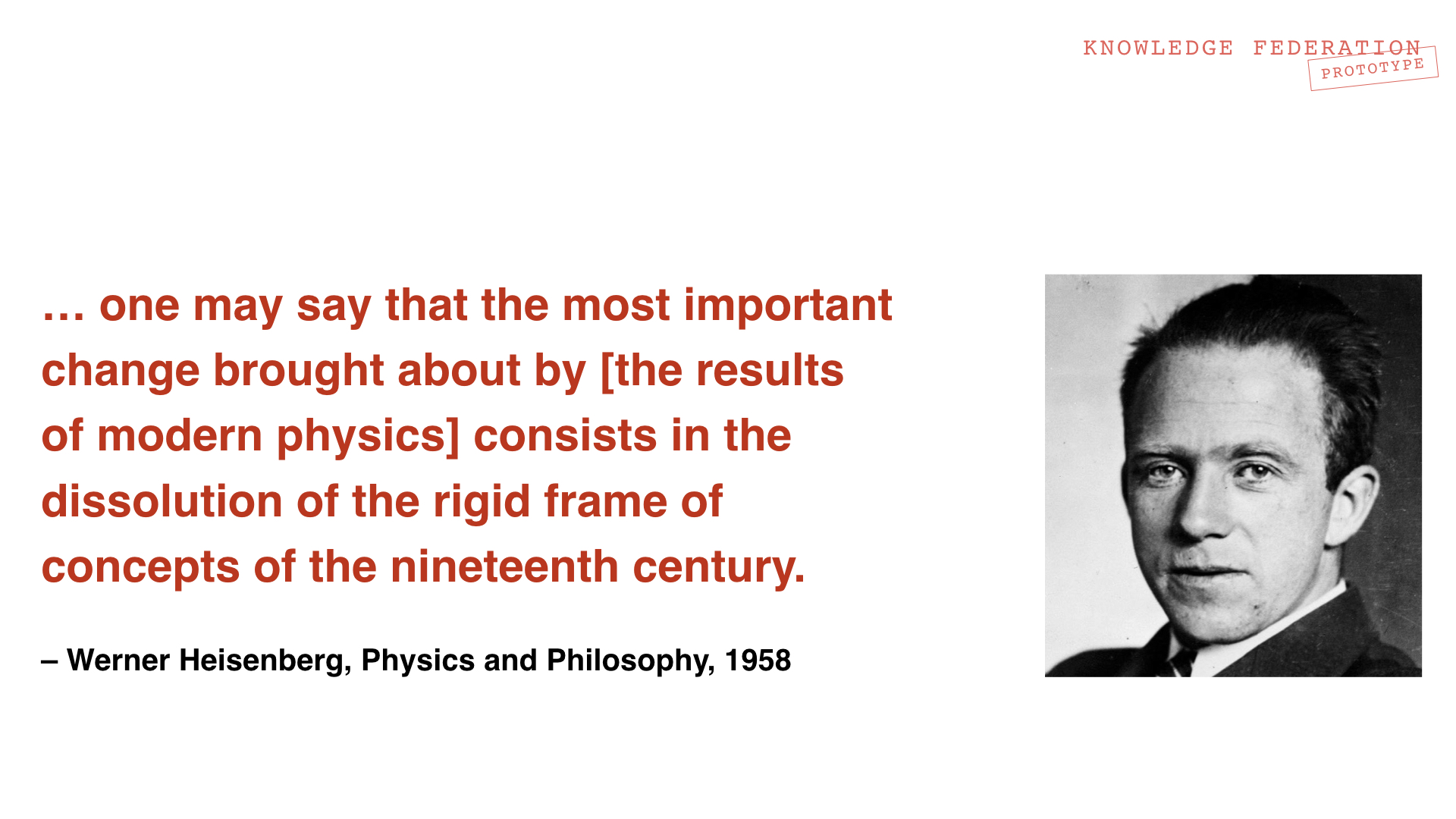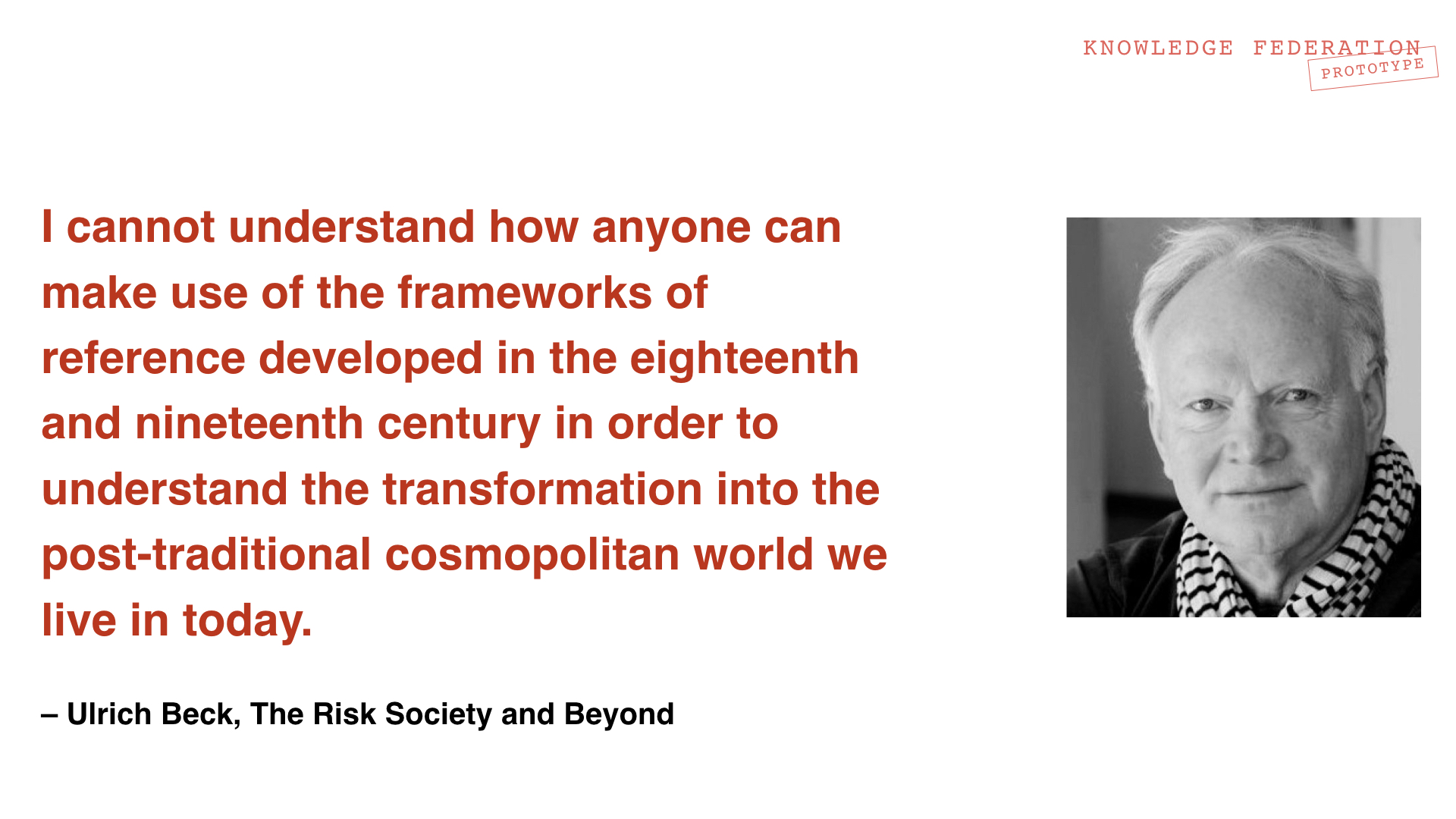Holotopia: Narrow frame
Contents
H O L O T O P I A: F I V E I N S I G H T S
Narrow frame
Science gave us a completely new way to look at the world. It gave us powers that the people in Galilei's time couldn't dream of. What might be the theme of the next revolution of this kind?
Science was developed as a way to find causal explanations of natural phenomena. Consequently, it has served us well for some purposes (such as developing science and technology) and poorly for others (such as developing culture).
But its main disadvantage in the role of 'headlights' is that it constitutes a 'hammer'; it coerces the creative elite to look for the 'nail'—and ignore the needs of the people and the society.
Stories
This is not an argument against science.
Science has served us excellently in the role it was created for. There is no reason to believe that it will not continue to do so.
Our theme here is how we create truth (what we collectively believe in) and meaning, about the matters of which our daily life and interests are composed. And also those other matters, which demand our attention but remain ignored.
We have an urgent need for orientation and guidance.
In all walks of life—so that we may see things as we need to see them; and direct our efforts productively and wisely.
Our point of departure is the fact that nobody really thought about and created the way we create truth and meaning about the themes that matter. What we have, and use, is a patchwork made out of fragments from the 19th century science (which were there when our trust in tradition failed, and our trust in science prevailed), and popular myths. We tend to take it for granted, for instance, that something is trustworthy, true, legitimate or real, (only) if it is "scientifically proven".
Our point is that we can do better.
And that our task at hand (federating Aurelio Peccei's call to action, to pursue "a great cultural revival") requires that.
We must return to reason
Stephen Toulmin's book "Return to Reason" provides a historical view of our theme, from the pen of a prominent philosopher of science. Toulmin's point is that for historical reasons, academic research got caught up in a disciplinary pattern deriving from the 19th century physics—which obstructs and confines academic creativity. Toulmin's call to action is to "return to reason"—and apply it creatively and freely (see our summary).
Insights from physics
In "Physics and Philosophy" (subtitled "Revolution in Modern Science"), Werner Heisenberg observed that the way of looking at the world that our general culture adopted from the 19th century physics constituted a "rigid and narrow frame", which was damaging to culture. Heisenberg explained why the results in contemporary physics amounted to a scientific disproof of the narrow frame (see our summary here).
Heisenberg foresaw that the epistemological insights reached in modern physics would naturally lead to cultural revival. Click here to hear Heisenberg say that
Most people believe that the atomic technique is the most important consequence. It was different for me. I believed that the philosophical consequences from atomic physics will make a bigger change than the technical consequences in the long run. (...) So we know because of atomic physics and what was learned from it that general problems look different than before. For example, the relationship between science and religion, and more generally, the way we see the world.
Insights from the humanities
In the humanities, it is common knowledge that the ways of looking at the world we have inherited from the past will not serve us in this time of change. See our comments that begin here.
</div> </div>
To be continued



